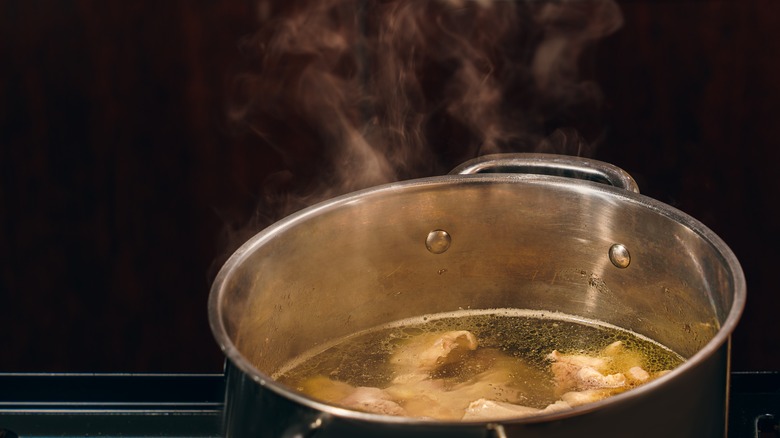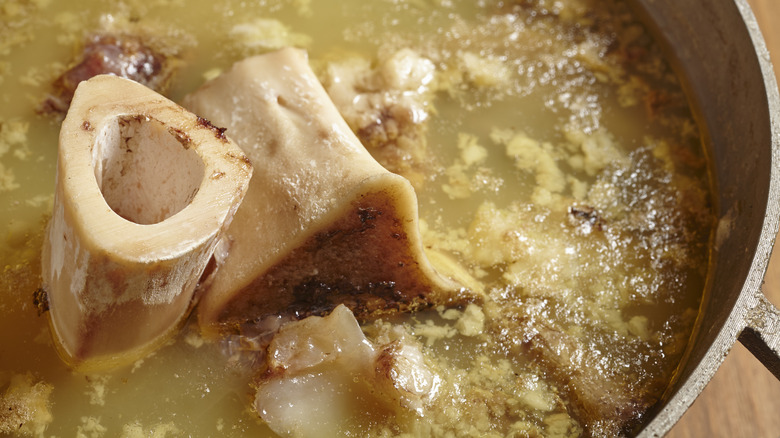Why It's A Huge Mistake To Not Blanch Bones When Making Broth
Broth serves as the backbone — pun intended — of countless dishes, infusing depth, flavor, and richness into meals. This luscious liquid plays a crucial role in many cuisines around the world. The broth is the star of the show for the signature soups in locales as varied as France (French onion), Italy (minestrone), and Vietnam (pho). But it's not just soups that benefit from the complex flavors of a well-made broth; risottos, sauces, and gravies also owe much of their deliciousness to a good broth. Mastering the art of broth-making is something all chefs take pride in.
The process of making broth, particularly bone broth, takes a lot of patience, attention to detail, and sometimes, a few secret tricks. One crucial but often overlooked step is blanching the bones before simmering. Blanching is a technique that involves boiling bones for a short period before rinsing them in cold water. In other words, it's a quick boil followed by a cold rinse. Unfortunately, many people skip this step, assuming it's covered by the prepping and the simmering process. As it turns out, this can be a misstep that significantly impacts the quality of the whole dish.
How skipping blanching can ruin your culinary masterpiece
Blanching is not just about cleaning the bones: It sets the stage for a clear, pure, and flavorsome broth that can take a dish from good to wow. Without blanching, impurities and particulates remain in the broth, leading to a cloudy, off-putting appearance. These impurities can include blood, fat, and other soluble proteins that surface as scum when the bones are boiled. Not only does this affect the broth's visual appeal, but it also compromises the texture, leaving a greasy mouthfeel and a muddy flavor profile. This can be particularly noticeable in lighter soups, such as pho and chicken noodle soup, where clarity and purity are paramount.
The lack of blanching can also result in a broth that's too strong or off-tasting. Instead of complementing and bringing out the best in the main ingredients, such an overpowering broth will drown them down, thus disrupting the delicate flavor profile of your dish.
While blanching may seem like a small step, it can make a world of difference in the quality of your food. Cutting corners may save you a little time but will result in a flavor and texture faux pas that no amount of seasoning can salvage. In the end, when it comes to cooking, it's the little bones of contention that can make or break a dish.

